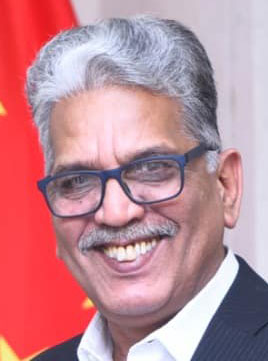Belt and Road Initiative

In an era marked by unprecedented global interconnectivity, the concept of a global community of shared future has taken center stage. In this landscape, the Belt and Road Initiative (BRI) emerges as a beacon of hope, a path towards shared development and prosperity. The BRI represents not just a conceptual framework but a practical roadmap that promotes ideas central to the present world-development, security, openness, cooperation, civilization, and governance. This ambitious initiative rests on three foundational principles: extensive consultation, joint contribution, and shared benefits.
Extensive Consultation: Fostering True Multilateralism
One of the cornerstones of the BRI is the principle of extensive consultation. This principle underscores that the BRI is not a unilateral endeavor by China but a collaborative effort involving all stakeholders. It promotes authentic multilateralism, emphasizing collective decision-making while respecting the varying levels of development, economic structures, legal systems, and cultural traditions of different nations. All countries, regardless of size and wealth, participate on an equal footing, providing opinions and proposals in bilateral and multilateral cooperation.
This principle encourages economies at different stages of development to reinforce communication, identify innovative cooperation mechanisms, and participate in global governance. By doing so, it seeks to create a platform for dialogue, cooperation, and interconnected development.
Joint Contribution: Collaboration for Shared Development
The BRI is not merely a geopolitical tool or an international aid program. Instead, it is a collaborative effort for shared development. The principle of joint contribution emphasizes the participation of all parties involved and coordination with the development strategies of relevant countries and regions. It seeks to capitalize on each party’s strengths and capabilities to collectively create new opportunities and driving forces for growth.
This principle encourages countries and businesses to engage through various forms of cooperation, such as bilateral, third-party market, and multilateral cooperation. It values market forces and promotes market-oriented operations to meet the expectations of all parties involved. China plays a pivotal role in BRI cooperation due to its economic size, market scale, and experience in infrastructure construction.
Shared Benefits: The Essence of Win-Win Cooperation
The principle of shared benefits underscores the importance of win-win cooperation. It aims to identify common interests, meet the development needs of all parties, and ensure that no participating country is left behind. Most participants are developing countries seeking to leverage collective strengths to address challenges such as inadequate infrastructure, lagging industrial development, and limited capital and technology.
Under the BRI framework, China provides assistance within its capabilities to partner countries and supports other developing nations in accelerating their development. Simultaneously, it aims to foster all-round opening up by building connections with other countries and creating a double development dynamic.
Concepts: Open, Green, and Clean Cooperation
The BRI embodies the concepts of open, green, and clean cooperation, which are essential for inclusive and sustainable development. It emphasizes transparency and opposes protectionism and unilateralism. The initiative welcomes countries from various regions, political systems, and backgrounds to participate, as long as they seek common development.
Green development is a central theme of the BRI, focusing on eco-friendly growth, renewable energy, and sustainable finance. It aims to establish a resource-efficient, eco-conscious, and low-carbon Silk Road, contributing to global efforts to address climate change.
Clean governance is considered vital for the steady development of the BRI. Participants commit to transparency and fight corruption, ensuring that financial resources and projects are managed with integrity and efficiency.
Objectives: High Standards, Sustainability, and Better Lives
The BRI sets ambitious objectives, aiming for high standards, sustainability, and improved quality of life for all participants. It introduces universally accepted rules and standards, promotes high-standard cooperation, and advocates for free trade zones and trade liberalization.
Sustainability is a key focus, aligning with the UN 2030 Agenda for Sustainable Development. The BRI aims to address root causes hindering development, integrate sustainable principles into projects, and ensure debt sustainability.
The initiative takes a people-centered approach, emphasizing poverty eradication, job creation, and the wellbeing of individuals. It encourages deeper cooperation in areas such as public health, poverty reduction, and education, aiming to improve people’s lives.
Vision: A Path to Global Wellbeing
The Belt and Road Initiative offers a path to global wellbeing, characterized by progress, cooperation, and inclusiveness. It promotes peace by fostering mutual respect and cooperation rather than confrontation. It envisions prosperity through win-win outcomes and shared development, rejecting exploitative practices of the past. It champions openness, seeking to create an open global economy that benefits all. And it drives innovation, harnessing technology for transformative advancements. Finally, it promotes social progress by encouraging dialogue, mutual understanding, and coexistence among civilizations.
In short, the Belt and Road Initiative represents a significant step towards a more interconnected, equitable, and prosperous world. By adhering to its principles and concepts, and pursuing its objectives and vision, the BRI holds the potential to pave the way towards a brighter future of shared development and prosperity for all nations involved.



